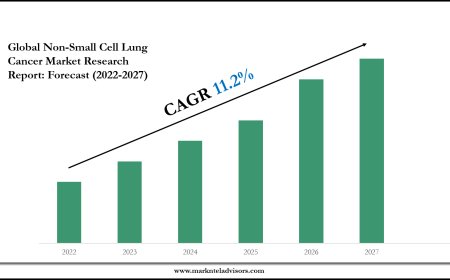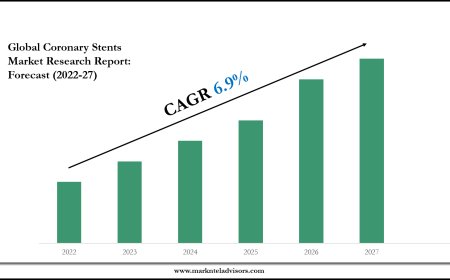Why Finance Experts Rely on Tax Advisor Certification
Why top finance experts swear by tax advisor certification for prestige, profit, and career growth. Learn how it boosts credibility and earnings

Have you ever wondered what sets top-tier finance professionals apart from the rest? It’s not just experience or connections—it’s credentials. One of the most coveted titles in the finance world is tax advisor certification. This isn’t just another piece of paper to frame on your office wall; it’s a game-changer that brings both prestige & profit.
In today’s competitive financial landscape, standing out isn’t optional—it’s a necessity. Having an advisor certification cements your credibility and boosts your earning potential. If you’ve been on the fence about pursuing certification, this guide will break down exactly why it’s worth your time, effort, and investment.
What Is Tax Certification?
A tax certification is an official recognition proving that a finance professional has specialized expertise in tax planning, compliance, and advisory services. It validates your knowledge of complex tax laws, helping clients navigate financial matters while optimizing their tax liabilities.
This certification can be obtained through various organizations like:
-
The Internal Revenue Service (IRS) – Enrolled Agent (EA)
-
The American Institute of CPAs (AICPA) – Certified Public Accountant (CPA)
-
Chartered Tax Advisor (CTA) certification
-
Chartered Financial Consultant (ChFC) with a tax specialization
Each certification offers a unique set of advantages, but the common thread among them is credibility and higher earning potential.
The Prestige Factor: Elevating Your Career
Instant Authority in the Finance Industry
When clients look for a taxes excel advisor, they don’t just want someone who knows the basics of tax filing. They want an expert. An advisor certification is a badge of excellence that sets you apart from unlicensed competitors.
Gain Trust and Credibility
Trust is everything in finance. When handling sensitive financial matters, clients want someone they can rely on. Having a recognized certification reassures them that they’re in good hands.
Exclusive Career Opportunities
Certified tax advisors often have access to job roles that non-certified professionals can’t even apply for. Positions in high-profile firms, government agencies, and multinational corporations prioritize certified individuals over uncertified counterparts.
Networking with Industry Leaders
Having an advisor certification can open doors to exclusive finance networks, conferences, and high-level workshops. Being in the same circle as industry leaders can lead to more career advancements.
The Profit Factor: Increasing Your Earnings
Higher Salary Potential
According to industry reports, certified tax advisors earn 30%–50% more than their non-certified peers. Companies and individual clients are willing to pay a premium for an expert who has proven credentials.
More Lucrative Client Base
Wealthy individuals, business owners, and corporations prefer working with certified professionals. This means a steady stream of high-paying clients once you achieve certification.
Authority to Set Higher Fees
When you’re certified, you’re not just another tax consultant—you’re an industry expert. That means you can charge premium fees for your services.
Passive Income Through Courses & Consulting
Once you establish yourself as an expert, you can create courses, write books, or offer consulting services, generating passive income while expanding your influence.
How Tax Advisor Certification Improves Your Skills
Mastering Tax Laws & Regulations
Tax laws are constantly evolving, and staying updated is crucial. A tax advisor certification ensures you understand complex tax codes and legal compliance requirements.
Expertise in Advanced Tax Strategies
Being certified means you’re not just filling out tax forms—you’re developing strategies to legally reduce tax liabilities for businesses and individuals.
Learning to Use Tax Software Efficiently
Certified professionals learn how to maximize tools like Taxes Excel, QuickBooks, and other tax software to streamline processes and provide more accurate tax planning solutions.
Becoming a Problem-Solver for Clients
With your deep knowledge of tax laws, you can help clients navigate audits, minimize tax burdens, and maximize deductions, making you indispensable to businesses.
How to Get a Tax Advisor Certification
Choose the Right Certification
Research different certifications like CPA, EA, or CTA based on your career goals and location.
Meet the Eligibility Requirements
Each certification has its own educational and experience prerequisites. Ensure you meet them before applying.
Study and Pass the Exam
Most certifications require passing a rigorous exam covering tax codes, laws, and accounting principles. Investing in preparatory courses can boost your chances of success.
Maintain Your Certification
Once certified, you’ll need to complete continuing education courses and stay updated with new tax laws to keep your certification active.
Conclusion
A tax advisor certification isn’t just about prestige—it’s a powerful tool that enhances your credibility, boosts your earnings, and opens doors to new career opportunities. In a field where expertise is everything, getting certified is one of the smartest moves you can make.
So, if you’re looking to elevate your finance career, attract high-paying clients, and master tax strategies, investing in certification is the way to go. The sooner you start, the sooner you’ll reap the rewards!
FAQs
1. Is tax advisor certification worth it?
Absolutely! It enhances your credibility, increases your earning potential, and gives you access to high-paying clients.
2. Which tax advisor certification is best?
It depends on your goals. The EA is ideal for tax professionals, while the CPA is great for those wanting broader accounting expertise.
3. Can I get certified without an accounting degree?
Yes! Certifications like the Enrolled Agent (EA) don’t require an accounting degree, making it accessible to professionals from various backgrounds.
4. How long does it take to get certified?
It varies by certification. Some can be completed in a few months, while others (like the CPA) may take a few years, depending on study time and exams.
5. Does tax advisor certification expire?
Most certifications require continuing education to stay active, ensuring professionals stay updated with evolving tax laws.




































































